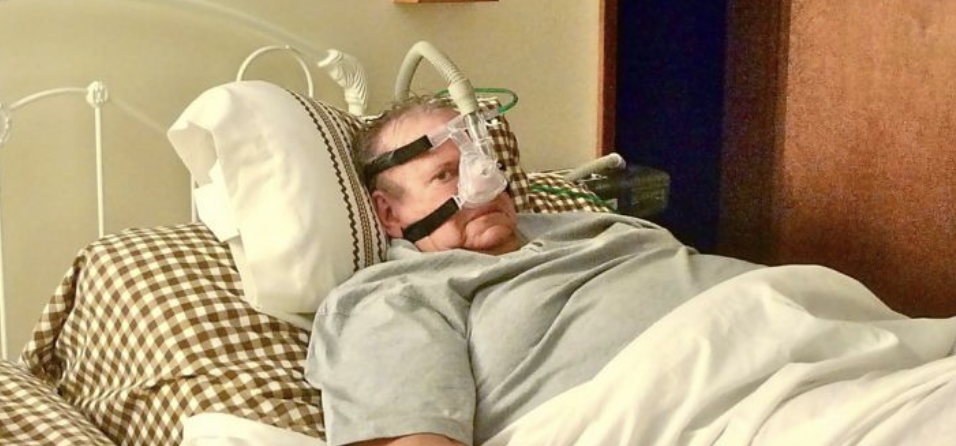

Sleep apnea is a complicated sleep disorder that causes pauses in sleep while sleeping. Living with sleep apnea can be a challenge, but Continuous Positive Airway Pressure (CPAP) therapy offers a life-changing solution. However, the result of your therapy highly depends on the kind of CPAP mask you choose.
There are various options of CPAP masks available, from hybrid CPAP mask types to nasal pillow CPAP masks and full-face CPAP mask. The mask you select should offer comfort, a secure fit, and compatibility with your breathing style.
In this blog, we will shed some light on the factors to consider when finding the ideal CPAP mask to ensure a restful and successful sleep apnea treatment.
CPAP masks come in various types, each catering to different preferences and requirements of sleep apnea patients. Before diving into the specifics, you should know about the three primary types of CPAP masks:
As the name suggests, nasal masks cover the nasal area of the face, which is the nose. They are an excellent choice for individuals who breathe through their noses. These masks are compact and lightweight, which makes them comfortable to wear while sleeping.
Compared to nasal masks, nasal pillow masks are quite minimalistic and comfortable. They feature soft inserts (nasal pillows) that seal against the nostrils. They are ideal for users who want a compact and open-face design.
Full-face masks are designed to cover both your nose and mouth, which is quite suitable for mouth breathers or patients suffering from nasal congestion. They offer comprehensive coverage and can be a good fit for higher-pressure settings.
Finding the right fit of a CPAP mask is essential to have a comfortable sleep at night. Now, let's delve into the considerations for finding the right CPAP mask for your needs:
Your sleep position and movement during the night are essential factors to consider when choosing a CPAP mask.
If you primarily sleep on your back, a nasal mask or nasal pillow mask may be a suitable option since they maintain a good seal and comfort in this position.
Side sleepers may benefit from masks with adjustable headgear or straps that prevent displacement when changing positions. Nasal and full face masks often work well for side sleepers.
If you frequently toss and turn during the night, consider masks with a sturdy, secure fit. Some masks feature ball-and-socket joints that allow for flexibility without breaking the seal.
Your natural breathing style plays a significant role in determining the right CPAP mask for you. Consider whether you are a nasal breather, a mouth breather, or a combination of both.
Nasal masks and nasal pillow masks are the best choices for individuals who primarily breathe through their nose.
Full face masks offer complete coverage, accommodating both nasal and oral breathing. Some users prefer using chin straps in combination with nasal or nasal pillow masks to address mouth breathing.
If you're unsure or tend to switch between nasal and mouth breathing during the night, a full face mask might be the most practical choice.
If you suffer from allergies or nasal congestion, it can affect your mask selection. Individuals with chronic congestion may find it challenging to maintain a good seal with nasal or nasal pillow masks, making a full face mask a more comfortable choice.
The presence of facial hair can affect the seal of a CPAP mask. If you have a beard or moustache, consider full face masks that provide a secure fit and accommodate facial hair. Additionally, if you have sensitive skin, look for masks with cushion options designed for sensitive skin to prevent skin irritation.
A proper fit is essential for your CPAP mask to work effectively. Look for a mask that offers adjustability and customizable features to ensure a snug but comfortable fit. For instance, you can opt for masks with adjustable headgear, preferably with Velcro straps, that can be easily customized.
Also, look for additional options that add to your comfort, such as cushioning options that cater to your skin type and comfort preferences.
Lastly, pay attention to the mask frame, as some masks have flexible frames and headgear connections, allowing you to move naturally while maintaining the seal. All these factors contribute towards providing comfort so that you can have a peaceful sleep at night.
Different masks may produce varying noise levels due to their design. While it might not be a deal-breaker, it's something to consider if you happen to be a light sleeper or if you have a sleeping partner. Some masks come with noise-reducing features and diffusers to minimize sound.
Choose a mask that is easy to clean and maintain. The masks with removable and replaceable components, such as cushion seals and headgear, would be a great choice as it will increase the longevity of the mask. Also, make sure that the replacement parts are readily available to you.
CPAP masks come in different designs, features and innovations through various manufacturers, so you need to research the brands and models available by going through user reviews and seeking the advice or recommendations of your doctor.
You may need to go through the process of trial and error before finding your ideal CPAP mask since every individual is different, which means what works for them may not work for you, so you need to be patient and willing to explore other options until you discover the perfect fit, but it's well worth the effort because the right mask will provide comfort, a secure fit, and a restful nights and fulfilling sleep apnea treatment.
Leave a comment